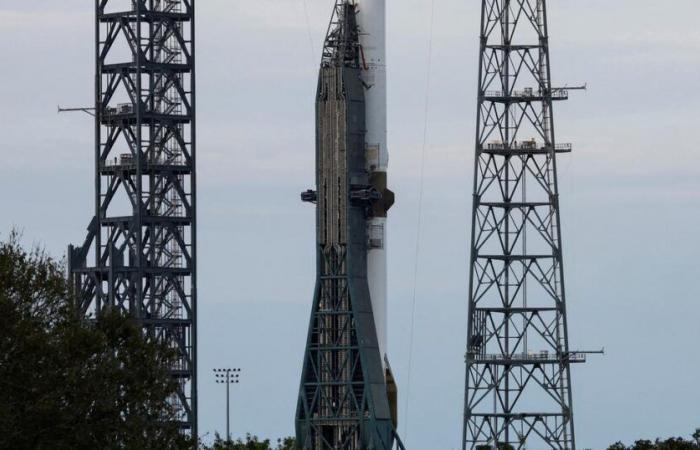This rocket, which took years to design and whose launch has already been postponed multiple times, measures 98 meters, the size of a building of around 30 floors.
After a last minute cancellation, Amazon founder Jeff Bezos' company Blue Origin is planning a takeoff this Tuesday, January 14 of its large New Glenn rocket, an inaugural flight aimed at consolidating its position in an ever more competitive space sector, especially in the face of to Elon Musk. The New Glenn rocket was scheduled to lift off for the first time early Monday from Florida, but a technical problem led the company to cancel the launch at the last minute.
This decision, announced during a live broadcast attended by hundreds of thousands of spectators, was due to a “ice formation” having affected an auxiliary system, the company said. Blue Origin announced Monday evening that it was planning a launch from the same time Tuesday morning at 1:00 a.m., while warning that “bad weather forecasts” could he “to make one miss” this three-hour launch window.
Also read
With his giant reusable New Glenn rocket, Jeff Bezos comes to challenge Elon Musk
This rocket, which took years to design and whose launch has already been postponed multiple times, measures 98 meters, the size of a building of around 30 floors. Its launch, which should mark a turning point for Blue Origin, mainly aims to reach orbit. If the company of the founder of Amazon has already been taking tourists for a few minutes into space for years thanks to its smaller New Shepard rocket, it has so far not carried out any flight into orbit.
Competing with Space X
With New Glenn, Blue Origin aims to catch up with its great rival SpaceX, which belongs to another American billionaire, Elon Musk. The latter had also wished “good luck” to Blue Origin on the social network Coincidence or not with the calendar, SpaceX intends to conduct the seventh test flight of its mega rocket later in the week.
With New Glenn, which is a “heavy launcher”Blue Origin aims to compete with SpaceX on its field: the launch of commercial and military satellites into orbit, but also ships and astronauts. Its rocket must be able to carry up to 45 tonnes into low orbit. This is more than double that of Falcon 9, but less than Falcon Heavy (63.8 tonnes). “It’s a good thing to have competition, to have choice”insists George Nield, president of a company promoting private space activities.
“This is very important for the commercial space industry, but also for the government and NASA” because this not only reduces costs, but also offers a plan B “in the event of a problem with a device”he said. Blue Origin has already signed contracts with several customers, including the US space agency for an unmanned mission to Mars, and the US government for national security missions.






